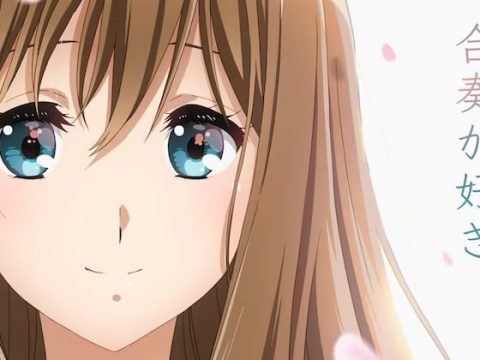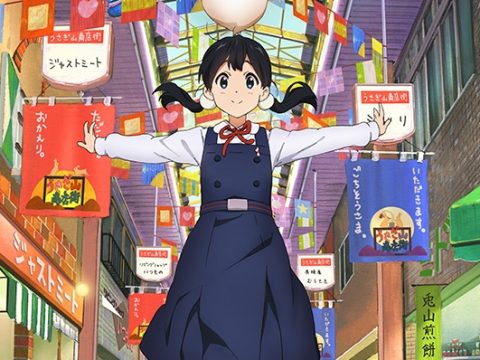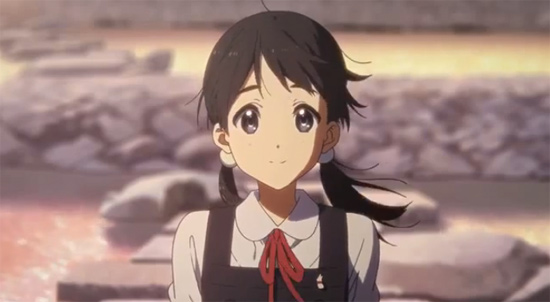
Reviewing a film that’s so far out of your normal range, whose target audience is so obviously not you, is an interesting challenge. That’s the task at hand as I sit down to write about the new film from Kyoto Animation, Tamako Love Story.
Let’s get that out there at the outset: this is not my kind of thing. While Kyoto Animation (or KyoAni, as they’re colloquially known) are worthy of respect for many reasons – they reputedly pay their animators a living wage, which is definitely not a given in anime, and employ many more women than the average studio, including this film’s director, screenwriter, and character designer – I’m not a fan of the stuff they actually produce.
Tamako Market, the 2013 KyoAni series of which this film is a sequel is no exception, an idealized portrayal of life in a Kyoto shopping arcade with broad, archetypical kawaii-as-can-be characters that feel designed to push otaku buttons without ever coming close to resembling something authentic.
So that’s where I’m coming from.
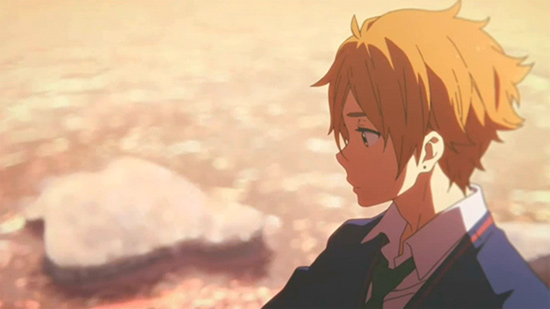
But here are the facts: Tamako Love Story is the sequel to Tamako Market, which centered around Tamako, a high school girl whose grandfather and father run a mochi (Japanese rice cake) shop in a shopping arcade. Tamako has grown up in and around the arcade, which is populated by various friendly shop owners, as well as a rival mochi shop which her childhood friend Mochizou and his family run. In the series, Tamako’s life takes an unexpected turn when a talking bird named Dera arrives from a faraway foreign country and ends up living with Tamako and her family.
In the film, Dera has gone home (and appears only very briefly; sorry Dera fans) and life in the shopping arcade has returned to normal. Tamako and Mochizou have begun their third year of high school and have to grapple with the decisions that come with that stage in life. Michzou, who’s decided to go to film school in Tokyo, has decided to do what he was unable to do through the course of the TV series: tell Tamako he likes her.
What Mochizou says – and how Tamako reacts – is the pivot around which the film revolves, though there are various side-stories that run the course of the film, like Tamako’s baton club competing in the town’s local marching festival.
Technically, Tamako Love Story basically replicates the aesthetic of the series, sharing the same locations and character designs. There are a few ambitious shots, though, that feel a bit more filmic than the budget (or time limit) of the series allowed, including an interesting time-lapse sequence in Tamako and Mochizou’s classroom.
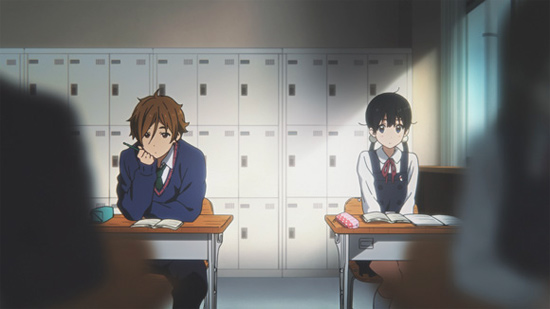
Of most interest to Tamako Market fans is probably the tone of Love Story, which differs significantly from the series. It’s missing Dera, for one, which both removes one of the series biggest sources of humor and its sole fantasy element, making the film much more of a standard high school story.
Furthermore, Michizou’s feelings for Tamako and his inability to confess them, which were played for laughs in the series, are taken seriously here, forming the heart of the story. That’s not to say Tamako Love Story is a complete tonal break from the TV series, but fans may find themselves falling into camps that approve of the more serious nature of the film and those who really miss that talking bird.
I’ve already made my feelings on the kind of stuff KyoAni specializes in, and this film didn’t do anything to change that opinion, but basically, I think Tamako Love Story will satisfy the audience it is meant to satisfy: fans of the original series or those interested in a competently-made, “slice-of-life” high school romance.
Those looking for a film that goes beyond the tropes, though, are advised to look elsewhere.
To see another trailer for Tamako Love Story, head back to our original announcement post.




